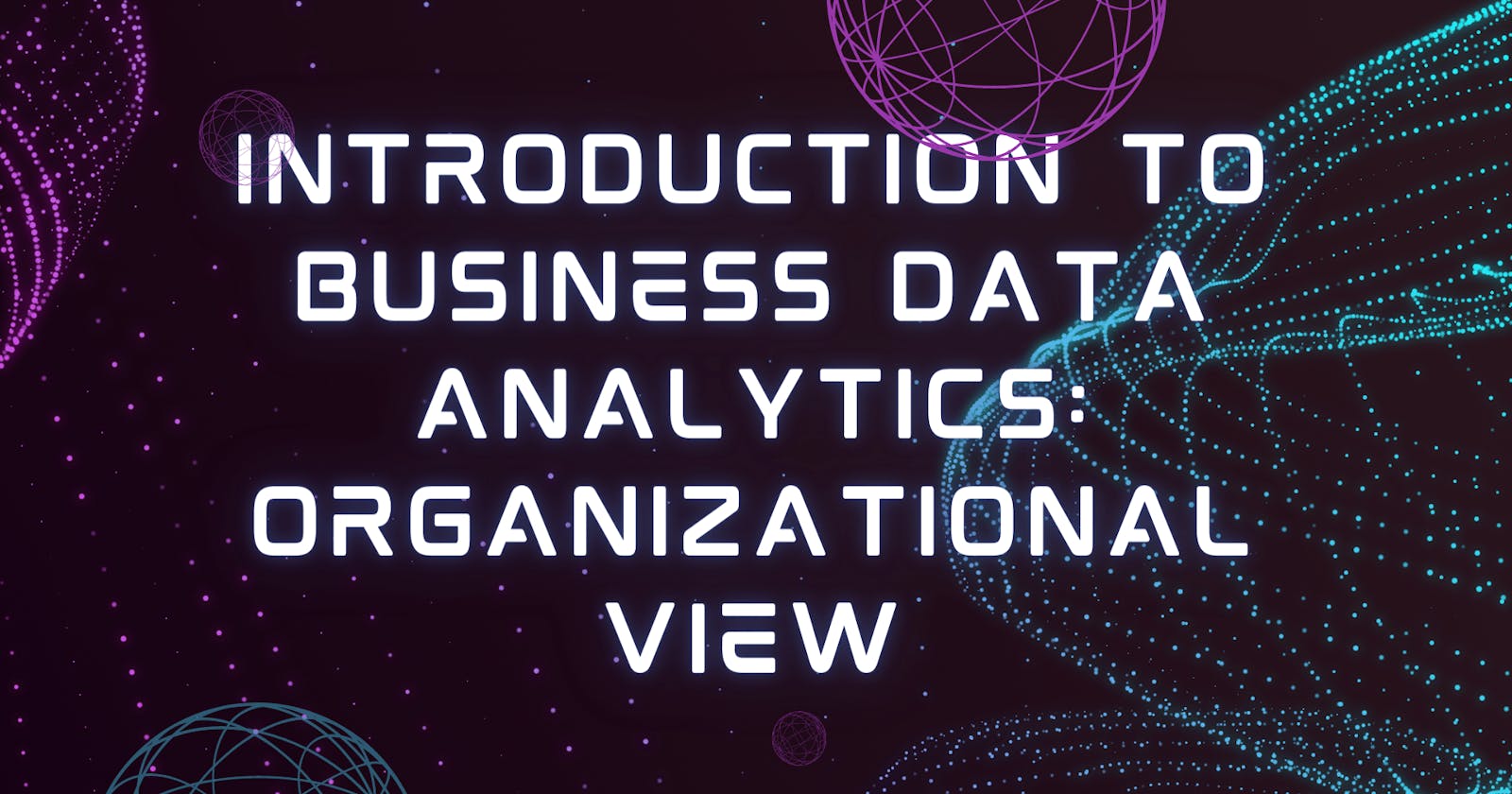Introduction to Business Data Analytics: Organizational View
Unleashing the Power of Data for Organizational Success
Introduction
Welcome to another exciting tech blog where we delve into the world of data analytics and its significance in the realm of business. Today, we are going to explore the organizational view of data analytics and understand how it can empower companies to make informed decisions and drive growth. In this era of digital transformation, data has become the lifeblood of businesses, and leveraging it effectively can provide a competitive edge. So, let's embark on this journey into the fascinating world of business data analytics!
The Rise of Data Analytics Companies
In recent years, we have witnessed the exponential growth of data analytics companies. These specialized firms are at the forefront of harnessing the power of data to extract valuable insights, optimize processes, and drive strategic decision-making. These companies employ cutting-edge technologies, such as artificial intelligence (AI) and machine learning (ML), to analyze vast amounts of data and uncover hidden patterns and correlations that can revolutionize business operations.
Understanding Organizational Data
Every organization generates an enormous amount of data on a daily basis, ranging from customer interactions, sales figures, operational metrics, employee performance, and more. However, raw data alone is of limited value. It is the interpretation and analysis of this data that transform it into actionable insights. This is where data analytics companies come into play, as they possess the expertise and tools to mine, clean, and process data to derive meaningful information.
The Role of Business Data Analytics
Data analytics, in the context of organizations, involves the systematic examination of data to identify trends, patterns, and relationships that can guide decision-making. By leveraging advanced statistical models and algorithms, businesses can gain a comprehensive understanding of their operations, customers, and market dynamics. This knowledge enables them to optimize processes, improve efficiency, enhance customer experiences, and identify new opportunities for growth.
Benefits of Business Data Analytics
Improved Decision-Making: Data-driven decision-making empowers organizations to move away from subjective opinions and base their strategies on concrete evidence. By analyzing historical data and real-time information, businesses can make informed decisions that are more likely to yield positive outcomes.
Enhanced Operational Efficiency: Data analytics allows companies to identify bottlenecks, streamline processes, and optimize resource allocation. By analyzing operational data, businesses can identify areas of improvement, eliminate redundancies, and enhance productivity.
Personalized Customer Experiences: Analyzing customer data enables businesses to gain insights into their preferences, behaviors, and purchasing patterns. This information can be used to create personalized marketing campaigns, develop targeted products or services, and deliver exceptional customer experiences.
Competitive Advantage: In today's highly competitive market, gaining a competitive edge is crucial for business success. Data analytics helps identify market trends, analyze competitor strategies, and uncover untapped opportunities. By leveraging these insights, organizations can stay ahead of the curve and outperform their rivals.
Challenges and Considerations
Implementing data analytics in an organization comes with its own set of challenges. It requires a robust infrastructure, skilled data analysts, and a culture that embraces data-driven decision-making. Data privacy and security also need to be carefully managed to protect sensitive information. Moreover, it is important to ensure ethical data usage and maintain transparency with customers about how their data is being utilized.
Conclusion
In this age of digital transformation, data analytics has emerged as a powerful tool for organizations to unlock their full potential. By harnessing the power of data, businesses can make strategic decisions, optimize operations, and enhance customer experiences. Data analytics companies play a pivotal role in enabling organizations to gain actionable insights from their data. However, it is important for businesses to overcome challenges, prioritize data privacy, and foster a data-driven culture to fully reap the benefits of business data analytics. So, embrace the data revolution and embark on a journey towards data-driven success!
